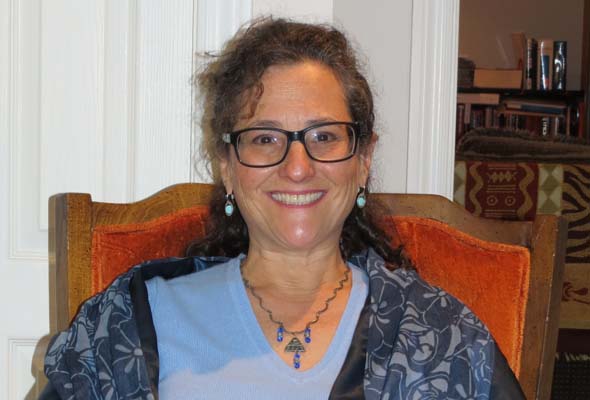When the kids leave home, it leaves a huge void for caring parents left behind.
If around the same time one’s own parents are confronting life-threatening diseases, the stress can be dramatic.
That is exactly the confluence that Minda Miloff faced as her three children were moving on and parents Harold and Gloria Miloff died, in May and October 2011.
Devoting herself to supportive and palliative care, Miloff’s work as a consultant in educational technology took a back seat and the result was a personal crisis.
“I lost parents who meant everything to me, my work has sort of tanked, my children were leaving, and I was left asking the question, ‘who am I?’
“I had zero definition of a daughter, a mother or a worker.”
She decided to turn around her working life and instead of giving advice in her previous role as a consultant to become a professional coach, to help people find their own answers to pressing issues.
To add to her university degrees in recreation and educational technology, Miloff enrolled in a “very rigorous” training program at the Institute for Professional Excellence in Coaching, in Toronto and New York City.
Miloff, who sees clients in person and also offers sessions on the phone or via Skype, is targeting people in their 50s or older who are facing a personal or career-based malaise.
“It is a time of life when people are often rethinking or questioning choices.
“You may be in a career that you’re not as enthusiastic about as you once were.
“You may be in a relationship that has lost some of its punch. You may be dealing with dying parents or have your own health issues. As a coach, I work with people who want to change, and grow, and how they want to lead the second half of their lives, so it is as true to who they are as possible.”
Coaching is not therapy, she underlines. “I am only interested in someone’s past insofar as we can draw on someone’s strengths to help them carve out a future.”
Her sessions raise provocative questions and accountability, she says, adding that it is more goal-oriented than cognitive behavioural therapy, which psychologists use in helping patients cope with anxiety and depression.
Miloff works with people wrestling with productivity or organizational issues, overwhelming anger or constant stress.
“It’s very oriented around a goal and small steps, so a person is very conscious and has a strong intention of what she is going to do.”
She cites as an example someone working as a professional, with strong income and status, but who was “really unhappy and was ready to take a chance and try a new career.”
“The risk is that they may not make as much money, it may not work out, and they are giving up a very secure position. It turned out this person was not ready to make the leap,” Miloff says.
“But what became apparent is that the person was really repressed at work. So we started working on how we can bring more to who you really are to your job.”
She helped the person through relaxation exercises, meditation and revisiting thought processes.
“This person had an incredible transformative change at the office. She hated her job because she was so uncomfortable every day.”
Coaching might also be appropriate for someone who has just stopped working, “is drowning” in newfound leisure time, and has not replaced work satisfaction with something else. Personal relationships can also be affected by retirement, while the emergence of serious health issues can leave people feeling lost and helpless.
Anyone entering what Miloff calls “the second half of your life” can be perplexed by questions regarding what is really important.
“My job is to help people to sift through that.”
Contact Minda Miloff at 514-791-4506, coachminda.com.

Hi, It has come to our attention that you are using our client’s photographs on your site without a valid licence. We have already posted out all supporting documents to the address of your office. Please confirm once you have received them. In the meantime, we would like to invite you to settle this dispute by making the below payment of £500. Visual Rights Group Ltd, KBC Bank London, IBAN: GB39 KRED 1654 8703, 1135 11, Account Number: 03113511, Sort Code: 16-54-87 Once you have made the payment, please email us with your payment reference number. Please note that a failure to settle at this stage will only accrue greater costs once the matter is referred to court. I thank you for your cooperation and look forward to your reply. Yours sincerely, Visual Rights Group Ltd, Company No. 11747843, Polhill Business Centre, London Road, Polhill, TN14 7AA, Registered Address: 42-44 Clarendon Road, Watford WD17 1JJ